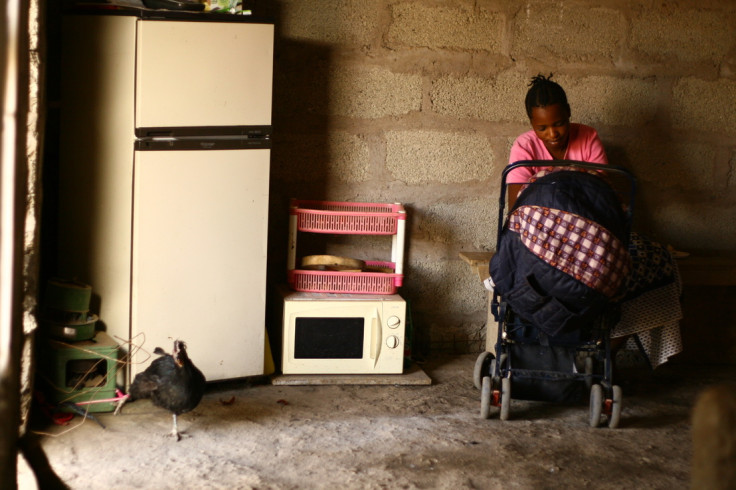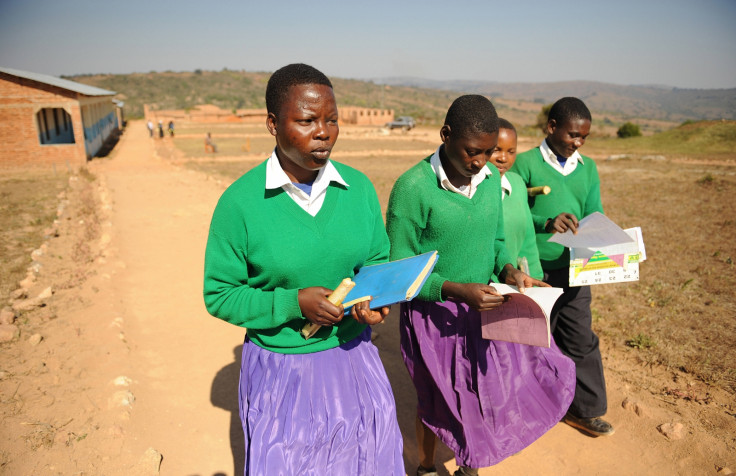Tanzania: Girls forced out of school by rampant sexual abuse and discrimination
Tanzanian girls face endemic issues of corporal punishment and sexual harassment by teachers say campaigners.

Despite education being a national priority for successive Tanzanian governments since independence in 1961, impunity for teachers sexually abusing girls and discriminatory policies against girls force tens of thousands out of school each year, human rights campaigners have warned.
In 2015, Tanzania made the positive decision to implement a free education policy for secondary education. However, a number of other barriers prevent 40% of Tanzania's adolescents – 1.5 million children – from attending secondary school, including financial reasons, a lack of secondary schools in rural areas, a leaving exam that limits access to secondary school, discriminatory policies and widespread abuse.
Introduced to fight "immorality", the current government policy allows for the automatic expulsion of visibly pregnant or married girls – child brides married before they are 18 – and girls who are tested positive for pregnancy.
"There's a very conservative estimate that 8,000 girls drop out of school annually because of teenage pregnancies – but some NGOs think it's much higher. When you add that, it's a really big percentage of girls who are already underrepresented in secondary education and are pushed out of the system," Elin Martínez, children's rights researcher at Human Rights Watch (HRW) told IBTimes UK.
Martínez recently visited Mwanza, Shinyanga, and Tabora regions in northwestern Tanzania, the latter being two regions with the highest prevalence of child marriage, teenage pregnancies and HIV rates in adolescents. There, nearly 60% of 20 to 24-year-old women are married by the age of 18 and 23% of adolescents aged 15-19 are pregnant or already have children.
Since 2013, the Tanzanian government has would consider adopting a policy for schools to not expel girls and in November 2016 it said the question was still in discussion and that it would soon be signed off. According to Martínez, the government is yet to make it official. The issue thereafter will be how to monitor the policy and its parameters are actually enforced as there is a lot of discretion at school level, where the head teacher can interpret the policy in his or her own way.

The issue of teenage pregnancies is further compounded by the endemic issue of corporal punishment and sexual harassment, with girls describing caning or beating to buttocks and breasts.
"There is widespread sexual harassment in schools by male teachers, or often male teachers persuade girls into sexual relationships that often, for some girls, ends up in pregnancies, and therefore means they will be expelled," she added.
In a school in rural Shinyanga, some ten girls confessed that one male teacher in their school was causing girls to drop out. "A girl recently dropped out because she had been raped by the teacher, and there had been no action [to hold him accountable or prosecute him]. We heard of a very large number of girls who were exposed to him," Martínez explained.
"It also means that a lot of girls decide to drop out of school because they no longer want to put up with a male teacher seducing them or courting them into sexual relationships."
According to the United Nations Children's Fund (UNICEF), there is a pattern of this issue across Tanzania, where there are often no mechanisms for children to report any form of abuse, whether it is corporal punishment or sexual abuse. In the cases where girls had reported this, they had not been taken seriously by teachers or officials, HRW confirmed. "Often the girl drops out, and the teacher remains in the school, or is shifted to another school without any investigation or prosecution."
Girls living far away from schools face the risk sexual exploitation on their way to schools. "Adult men offer them rides, money for transport or food in exchange for sex. That is a huge problem."
HRW urged the government to tackle the issue by recognising the widespread pattern and demonstrate their commitment towards ending the abuse in schools.
Challenges of education in Tanzania in numbers
- Tanzania has one of the world's youngest populations, with 43% under age 15
- Education has been a national priority for successive Tanzanian governments since independence in 1961
- 22% of the 2016-2017 budget allocated for education – representing TZS4.77tn (£1.7bn, $2.1bn)
- Since 2005, the government has taken important steps to increase access to secondary education, including by committing to build secondary schools in every administrative ward
- In some remote and rural areas of the country, students still have to travel up to 25km to school
- One in every five children are not in primary school
- Two out of five children of lower-secondary school age are out of school
© Copyright IBTimes 2024. All rights reserved.






